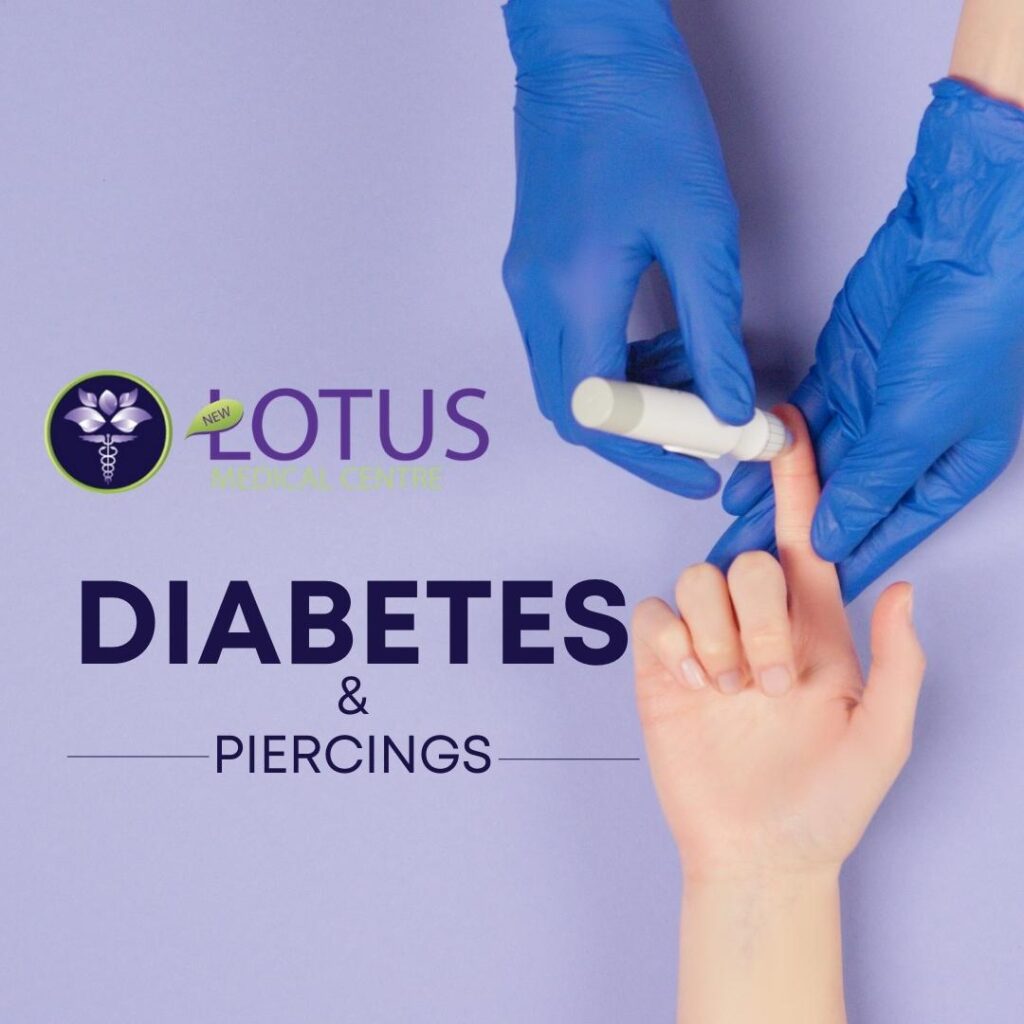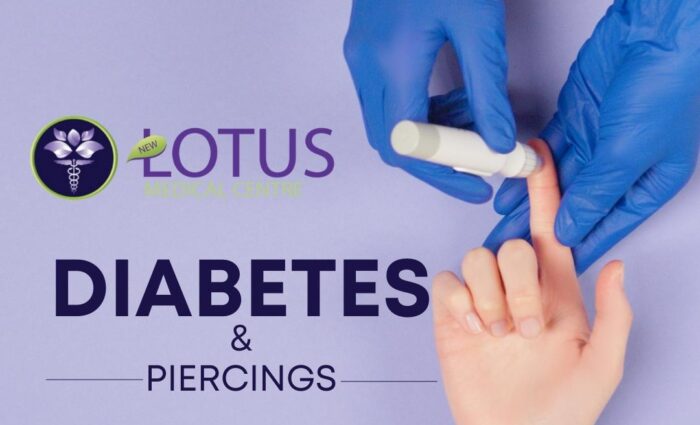Diabetes and piercings : When the pancreas can no longer generate insulin or when the body cannot effectively use the insulin it does produce, diabetes develops. The pancreas produces the hormone insulin, which functions as a key to allow glucose from food to enter the body’s cells where it may be used to make energy. All foods containing carbohydrates are converted to glucose in the blood. Insulin facilitates the uptake of glucose by cells. Blood glucose levels rise as a result of ineffective insulin production and utilisation (known as hyperglycaemia). Long-term elevated glucose levels are linked to cellular deterioration and organ and tissue failure.
Type 1, type 2, and gestational diabetes are the three main types.
Although type 1 diabetes can manifest at any age, children and adolescents are the most commonly affected. In order to keep blood glucose levels under control when you have type 1 diabetes, you need daily insulin injections since your body either generates very little or no insulin. Study more. Adults are more likely to develop type 2 diabetes, which makes up around 90% of all instances of the disease. The insulin that your body generates is not properly utilised when you have type 2 diabetes. The cornerstone of type 2 diabetes treatment is leading a healthy lifestyle, which includes more exercise and a balanced diet. However, most persons with type 2 diabetes will eventually need oral medication.
Tattoos and piercings with diabetes

Diabetes does not preclude getting inked or having an ear pierced. But before you do, your blood sugar levels must be within normal limits. Your tattoo or piercing may not heal properly or quickly if they aren’t, and you run the risk of developing an infection. To prevent these issues, your blood pressure should also be maintained. Before moving on, you might want to check that everything is fine with your diabetes team. The lengthy and painful process of getting a tattoo will cause your blood sugar to increase. Make sure to communicate with the tattoo artist and take frequent breaks so you can check your blood sugar levels. It is advised to avoid getting tattoos and body piercings on some parts of your body where there is a chance of impaired circulation if you have diabetes.
Infections can result from tattoos and piercings in these areas because they typically take longer to heal. These include your feet, ankles, shins, and bum. In order to clearly identify if any infections are forming on the regions where you typically inject insulin, such as your arms, stomach, and thighs, you should also avoid these areas. Flash glucose monitors shouldn’t be worn over tattooed areas if you use them or are thinking about using them because doing so could affect your results. After getting a tattoo or piercing, it’s crucial to monitor your blood sugar levels carefully and keep the area clean and protected. This will hasten and improve the healing process. Your blood sugar levels may increase if you contract an infection. If you have any symptoms of infection or feel unwell after getting a tattoo or piercing, consult your doctor right immediately for advice. At LOTUS we have the best faculty and experienced doctors to walk you through the treatment of diabetes.
Body piercing has many of the same hazards that people without diabetes often face. The most important element is that you need to keep an eye out for excessive blood sugar levels. If the location is unclean and you are unable to practise appropriate hygiene, the pierced area of your body may become
infected.
You need to take care of the following:
- Needles: You run the danger of contracting HIV, hepatitis infections, or other blood-borne viruses if the needle used to pierce your skin has not been sanitised.
- High blood sugar: If your blood sugar levels are higher than they should be, it could take longer for your piercing to heal, which could increase the chance that you will get an infection.
- Bleeding: The surgery could result in excessive bleeding, particularly in certain body parts. You may have high blood sugar and the following signs and symptoms if the pierced area of your body gets infected. At the piercing site, there is a heat sensation and pain, persistent erythema and swelling and green or yellow discharge



